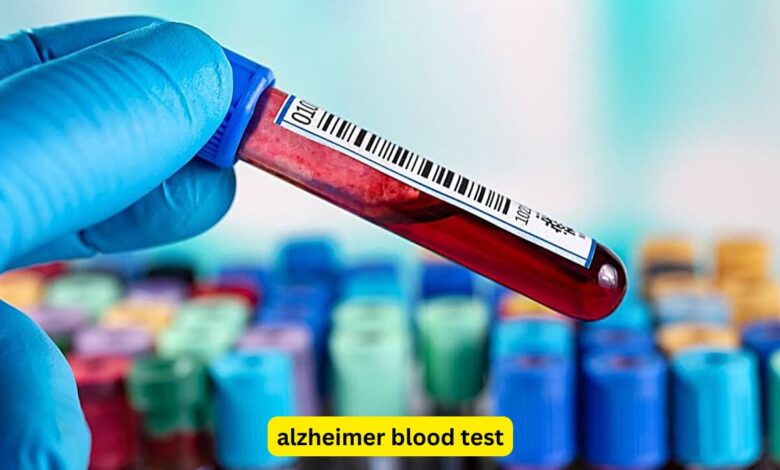Breakthrough in Alzheimer’s Diagnosis: Alzheimer’s Blood Test

Alzheimer’s Blood Test: A Revolutionary Step Forward
In the ever-evolving field of medical science, the Alzheimer’s blood test emerges as a groundbreaking advancement, offering hope and precision in the early detection of this debilitating disease. Alzheimer’s disease, a progressive neurological disorder, affects millions worldwide, leading to cognitive decline and memory loss. The new blood test, specifically measuring the biomarker p-tau 217, marks a significant leap forward in diagnosing and managing Alzheimer’s.
Understanding Alzheimer’s Disease
Alzheimer’s disease is characterized by the accumulation of amyloid plaques and tau tangles in the brain, leading to the degeneration of neurons. Traditionally, diagnosing Alzheimer’s relied on clinical evaluations, cognitive tests, and expensive imaging techniques such as PET scans and spinal fluid analysis. These methods, while effective, posed challenges in terms of accessibility, cost, and invasiveness. The development of a blood test for Alzheimer’s represents a paradigm shift, offering a simpler, more accessible diagnostic tool.
The Science Behind the Alzheimer’s Blood Test
The Alzheimer’s blood test focuses on detecting specific biomarkers associated with the disease. One of the most promising biomarkers is p-tau 217, a protein that accumulates in the brains of individuals with Alzheimer’s. Elevated levels of p-tau 217 in the blood correlate strongly with the presence of Alzheimer’s pathology. Researchers have found that measuring p-tau 217 can accurately distinguish Alzheimer’s from other neurodegenerative conditions, even in the early stages of the disease.
Advantages of the Alzheimer’s Blood Test
- Early Detection: The Alzheimer’s blood test can detect the disease at its nascent stages, allowing for timely intervention and management. Early diagnosis is crucial for implementing lifestyle changes and treatments that may slow the progression of the disease.
- Non-Invasive and Accessible: Unlike PET scans and spinal taps, a blood test is minimally invasive and can be administered in a routine clinical setting. This increases accessibility for a larger population, particularly those in underserved areas.
- Cost-Effective: Blood tests are generally more affordable compared to advanced imaging techniques, making them a cost-effective option for widespread screening and diagnosis.
- Enhanced Accuracy: Studies have shown that the Alzheimer’s blood test, particularly the measurement of p-tau 217, has high accuracy in diagnosing the disease. This reduces the likelihood of misdiagnosis and ensures that patients receive appropriate care.
Clinical Implications and Future Prospects
The introduction of the Alzheimer’s blood test has significant implications for clinical practice and research. For clinicians, it provides a reliable tool for early diagnosis, enabling them to formulate personalized treatment plans. Patients benefit from early interventions, which can improve their quality of life and slow disease progression. Additionally, the blood test can be used to monitor disease progression and evaluate the efficacy of treatments, offering a dynamic approach to managing Alzheimer’s.
In the research realm, the blood test opens new avenues for studying the disease’s underlying mechanisms. It facilitates the identification of at-risk populations and enhances the recruitment of participants for clinical trials. This accelerates the development of new therapies and interventions, bringing us closer to finding a cure for Alzheimer’s.
Integration with Other Diagnostic Tools
While the Alzheimer’s blood test is a powerful diagnostic tool, it is most effective when used in conjunction with other assessments. Cognitive evaluations, genetic testing, and imaging techniques still play a crucial role in providing a comprehensive understanding of a patient’s condition. The blood test serves as an initial screening tool, guiding further diagnostic steps and refining the accuracy of the overall diagnosis.
Challenges and Considerations
Despite its promise, the Alzheimer’s blood test faces certain challenges. Variability in test results, influenced by factors such as age, comorbidities, and genetic predispositions, necessitates further validation and standardization. Researchers are working to refine the test’s sensitivity and specificity, ensuring that it provides consistent and reliable results across diverse populations.
Additionally, ethical considerations regarding the use of the test for screening asymptomatic individuals must be addressed. The psychological impact of an early Alzheimer’s diagnosis, coupled with the current lack of a definitive cure, raises important questions about the best practices for implementing widespread screening programs.
Looking Ahead: The Future of Alzheimer’s Diagnosis
The development of the Alzheimer’s blood test is a testament to the advancements in medical research and technology. As the test undergoes further validation and refinement, it holds the potential to revolutionize Alzheimer’s diagnosis and management. The ultimate goal is to integrate this test into routine clinical practice, making early detection and intervention accessible to all.
In the near future, we can envision a healthcare landscape where the Alzheimer’s blood test is a standard component of annual check-ups for at-risk populations. This proactive approach will enable individuals to take charge of their health, implementing preventive measures and accessing treatments at the earliest possible stage.
For now, the Alzheimer’s blood test represents a beacon of hope, illuminating the path towards a world where Alzheimer’s disease is detected early, managed effectively, and ultimately, cured. As we continue to unravel the complexities of this disease, the blood test stands as a pivotal tool in our quest for a brighter, healthier future.




